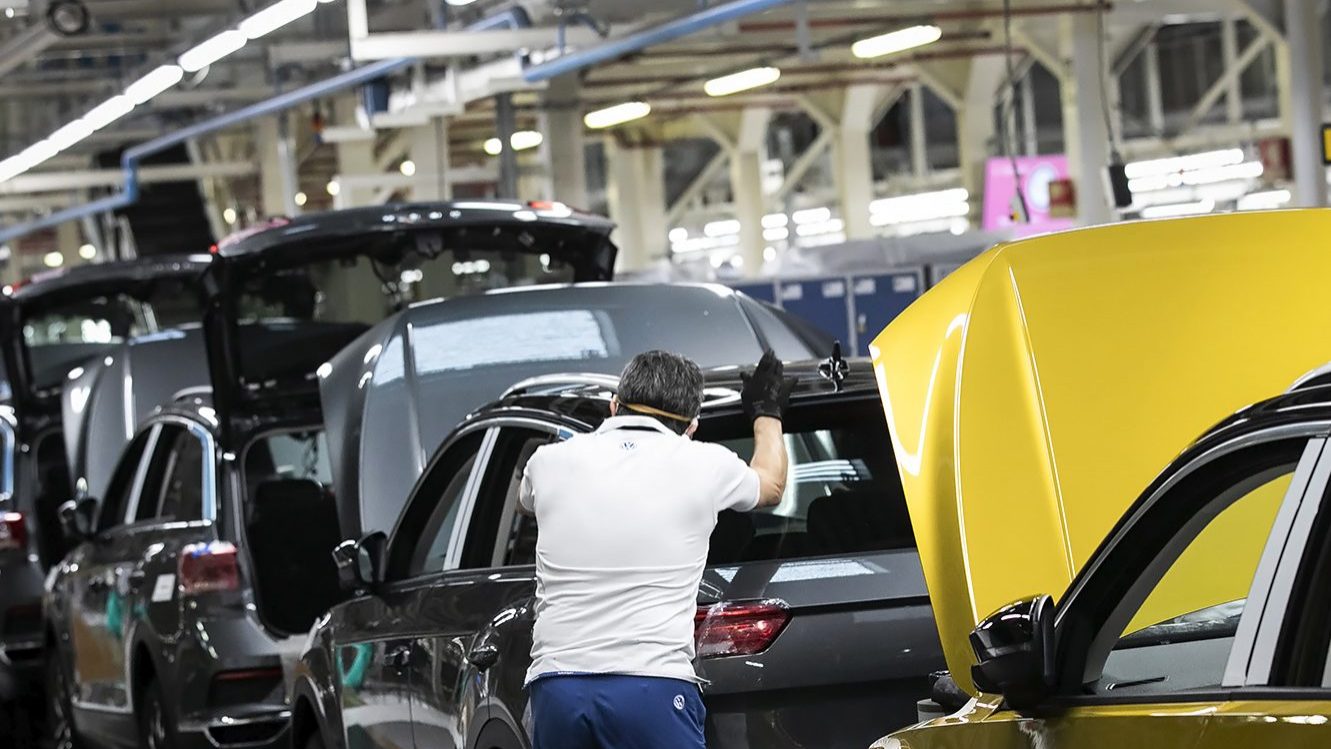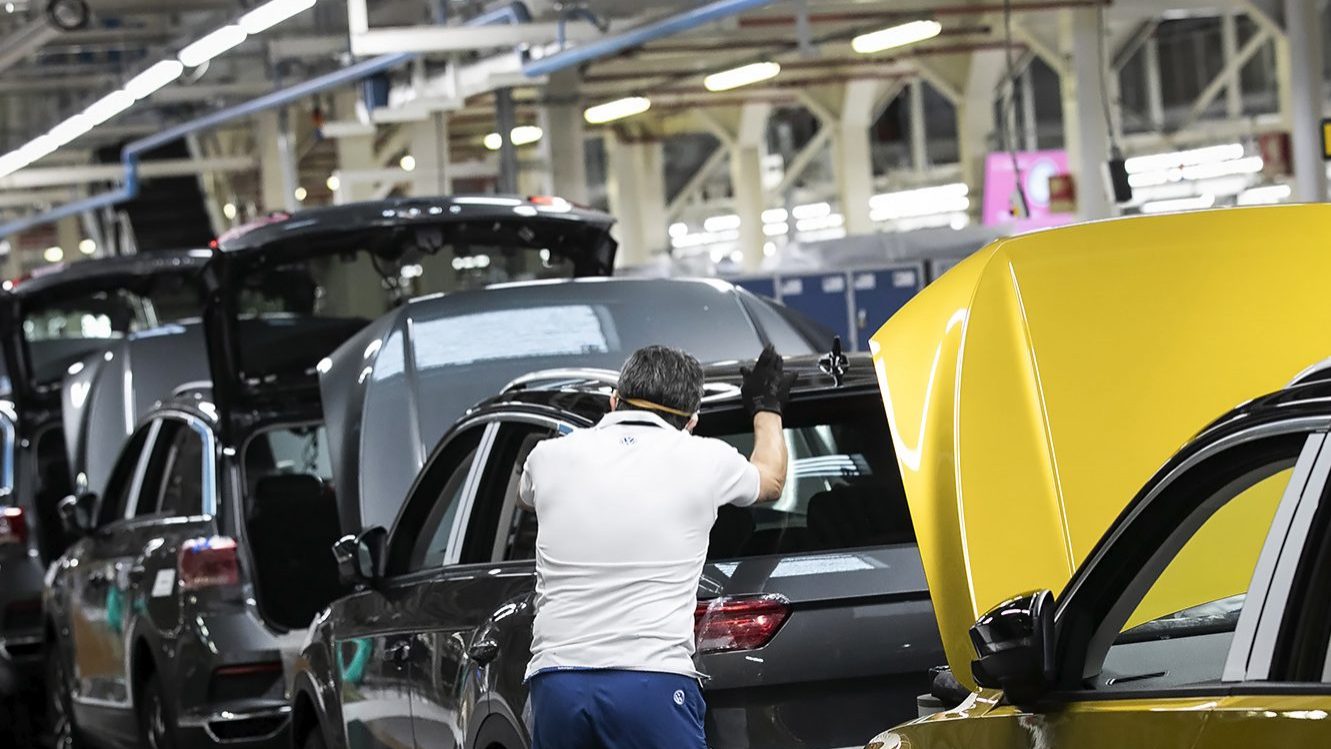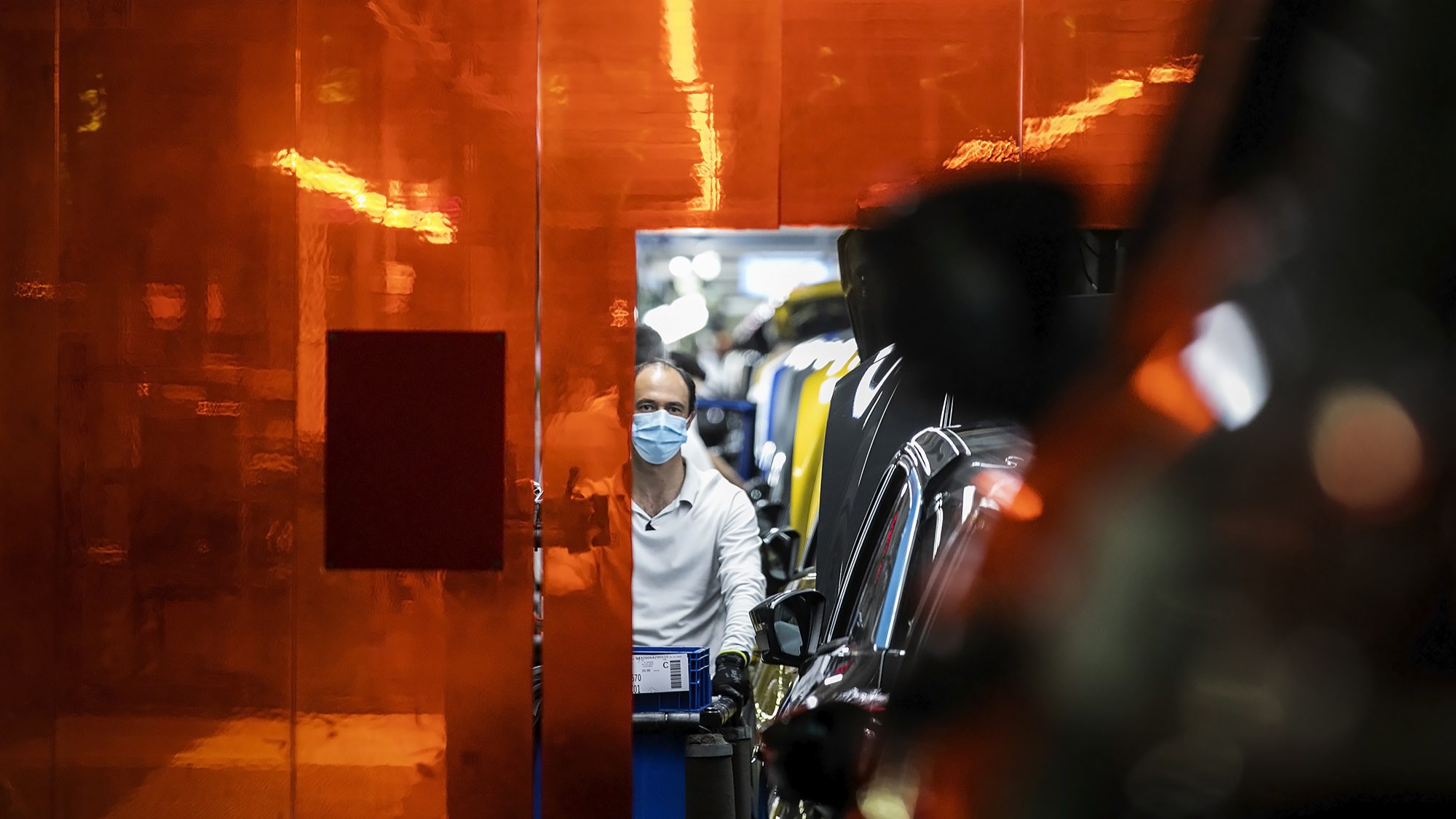VW plant to produce new hybrid to replace T-Roc in 2025
The director general, Thomas Hegel Gunther, explained that the production of this new vehicle, a hybrid, will begin in 2025.
The Autoeuropa factory in Palmela will produce a new Volkswagen model, which will reach the market in 2026, management announced to workers this weekend.
In an interview with Público newspaper, the director general, Thomas Hegel Gunther, explained that the production of this new vehicle, a hybrid, will begin in 2025.
“Our plan for the future includes a new vehicle, which will have its launch at the end of 2025. It will be a vehicle that we will produce here, electrified. It will be a hybrid and I believe it will have a great chance of being very successful,” the manager said.
Asked if this production means an addition to the production of the T-Roc model on the current assembly lines or if it will add lines to ensure both models, Gunther replied: “The new model will replace the production of the current one. We will modify things in the factory, with new investment.”
On whether this decision means that the current T-Roc will be produced elsewhere, the manager recalled that this model is currently produced in Portugal and China and that Autoeuropa will only produce the new model.
Público also writes that it is not clear if it will be a hybrid version (combustion engine plus electric battery) of the only model that unit is producing – the T-Roc -, or if it will be another, explaining that the brand registered the trade name ID.Roc, which generated speculation of a fully electric successor, something that the brand does not confirm.
Last month, workers at the Palmela factory demanded the adoption of measures to address the “lack of staff and overload of work on the production lines” with the management guaranteeing that it will find a way to resolve these issues.
Questioned by Púbico, the manager explained: “We have a different situation from last year. We stopped producing the Volkswagen Sharan and Seat Alambra [models] and were able to concentrate 100% on producing the T-Roc,” adding, “producing a T-Roc costs approximately 40% less time than a Sharan.”
“Consequently, it is normal for us to reallocate tasks on the production line. This is what happened, involving many employees”, he said.
The manager said that the current situation “allows us to produce more T-Roc [cars] with the same team” and insisted: “It is important that we can maintain the four teams and the 5,000 people we have in our factory”.
The manager, born in Brazil but with German roots, arrived in Portugal at the end of 2021, when Autoeuropa turned 30 years old. Last year, before the workers, in the last company agreement, he undertook that he would work to ensure a new model for the Portuguese factory.
The German brand will spend 600 million on the new model, modernisation and decarbonisation. This is 20% more than the 500 million announced a year and a half ago.
At the end of the current decade, it will be necessary to decide where to make new investments for new models. Spain has already got electric cars and a battery factory, but Gunther guarantees that Portugal remains relevant.
“We will invest what is necessary and what we think is right to continue to do what we do well: produce cars in Portugal,” he assured.


